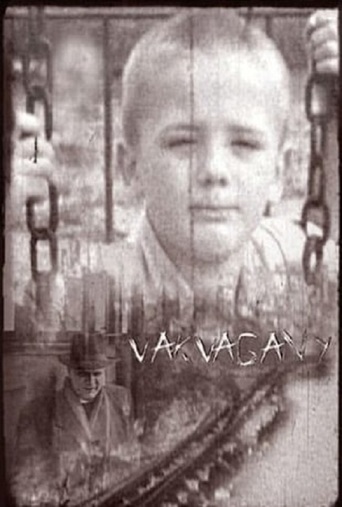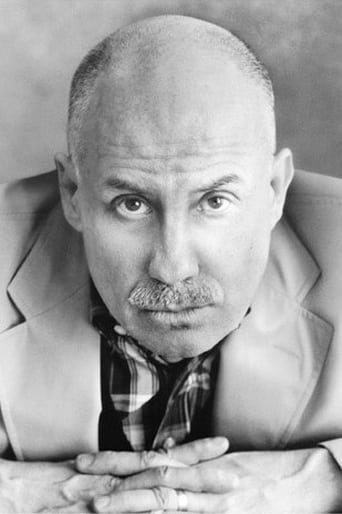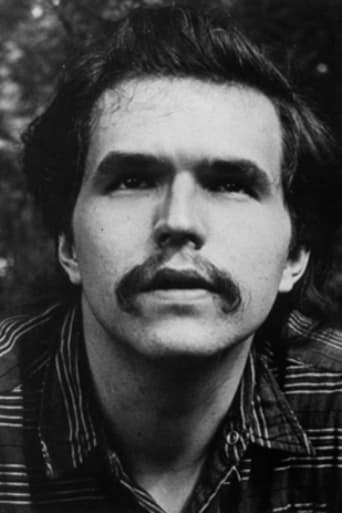

Vakvagany (2002)
Hungarian home movies are examined by the likes of James Ellroy and Stan Brakhage for evidence of family problems.
Watch Trailer
Cast


Reviews
Very very predictable, including the post credit scene !!!
At first rather annoying in its heavy emphasis on reenactments, this movie ultimately proves fascinating, simply because the complicated, highly dramatic tale it tells still almost defies belief.
It’s not bad or unwatchable but despite the amplitude of the spectacle, the end result is underwhelming.
Watching it is like watching the spectacle of a class clown at their best: you laugh at their jokes, instigate their defiance, and "ooooh" when they get in trouble.
The subject is a Hungarian family at first only known by a set of "found" home movies. The filmmaker (who apparently has commented here about his own movie) goes off on a search to find the subjects of the home movies. He does and films the wretched lives of the children, now grown and in their middle ages. Apparently not enough comes of this so the film maker enlists an unusual trio of commentators to view and react to the footage; a novelist, a psychiatrist and an avant-garde film maker. The result?A very disturbing glimpse into a ruined family. The commentators' opinions come at the same time as your own as they react to footage at the same time you see it. Some times they are insightful, other times just confused. Interestingly, the avant-garde film maker's comments are frequently the most insightful. Many things are not explained as a standard documentary would try to do. Perhaps the film makers were at a loss at what they had filmed when it was finished but that's not a drawback. You have to involve yourself with the mystery to really watch this film.A word on the "disturbing" end, namely the son's visit to his sister and the drinking binge right before it. It's clear that the film maker didn't know that the son would consume two full bottles of wine (gifts from the film maker) before the trip to his sister. Filming it was part of the story. The break-in happens after the son (who is mentally retarded) starts to worry about his sister who lived with him all his life, but hasn't spoken to him for a while now that they live apart. The actual entry into the house is done by a neighbor of the sister and the first view of her filthy kitchen made me think that she had been deceased for a long time. The sister is first seen sleeping, oblivious to the noise in her house, as if dead. She is extremely paranoid and quite crazy. she refuses to talk about her father except for a last comment that says tons about the man.A great film about the results of parents who smother the emotional growth of their children. The method of delivery, however, will not please many people.
This is a fantastic piece of filmmaking. Benjamin Meade has taken something as mundane as the home movie and created a stunning work. What is fascinating is that there is so much in this quasi- documentary that is shown. We follow a family, but like all families they have their history and live in a world that has history. They are their own world, and part of the world around them.The narration- comments that occur durring the film remind us of that. The family has their life, but part of that life is in the world in which they live.Then, we seek the family today. We wonder what happened to that family that we watched and became interested. This is where we literally jump into the screen. The director meets the son depicted in the home movies. We see what has happened to the son, raising questions about the rest of the family. We seek the daughter. This is where the director Meade shows what kind of film this is. Instead of being a dispassioned reporter, he has involved himself in this family. When there are questions about the wellbeing of the sister, the director involves himself, and the audience via the camera, in finding the answer.Does he take things too far? That is what each of us have to answer of ourselves. I guess it all depends on whether you can be compassionate with a camera in your hands. But, the audience should be greatful that they were taken on the journey.It also raises another interesting question. While much of the film takes place in Hungary, there is nothing that says that it could not happen in New York, or California, or Kansas. What do our home movies tell about us. What have we done since we were children? Are there hints in anyone's childhood that says where they are going?See the film, make your own judgements.
This is a film that deserves much more attention then it will probably ever receive. "Vakvagany" is at different times disturbing, thought-provoking, and hilarious. It is a documentary done by a relatively unknown director, and yet it is not only as good as any documentary film you will ever see, but to its great credit, it is also probably as accessible to a mainstream audience as a film like this could be. Hopefully the inclusion in the film of the renowned author and personality James Ellroy (at his wry best) will create an audience for the film; it has a timelessness about it that should allow it to sustain its relevance and impact over time. Three different perspectives about a series of remarkable old "home movies" that were discovered in a decrepit apartment in Hungary are provided by a filmmaker, a psychologist, and an author. Their vastly contrasting input provides the perfect framework for the astonishing footage that is the foundation of this film. The decision by the director Benjamin Meade to splice the comments of a panel of interviewees with disparate perspectives about a central subject reminded me of Errol Morris's great film "Fast, Cheap, and Out of Control."
In Budapest, Hungary, a man with a moving truck helps two middle aged siblings relocate and steals a box of home movies from their belongings. The film reels are then sold to a visiting independent filmmaker from the United States who returns home and views them only to find them too good to be amateur. Much of the family footage contains short narratives impersonating cinema as well as several images that would ordinarily be considered inappropriate for filming. There are also several reels of the father at work in what is apparently a government position documenting the inventory of jewelry and other personal property following WW II. The filmmaker puts together a production crew and returns to Hungary to track down the two siblings in an attempt to answer questions about the film content. Both the son and daughter are found living chaotic and separate lives of drunkenness and mental illness.With new film material in hand, the filmmaker returns to the United States and invites three professionals (James Ellroy, Stan Brakhage, and Dr. Roy Menninger) to experience the old and the new material and offer their own interpretations.



